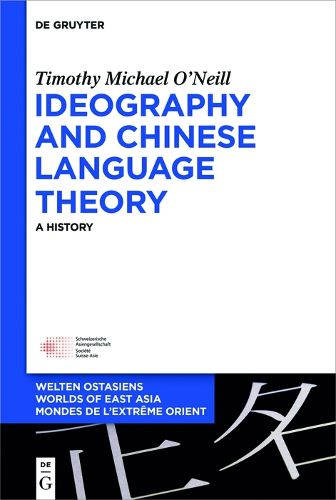Readings Newsletter
Become a Readings Member to make your shopping experience even easier.
Sign in or sign up for free!
You’re not far away from qualifying for FREE standard shipping within Australia
You’ve qualified for FREE standard shipping within Australia
The cart is loading…






This book is a much-needed scholarly intervention and postcolonial corrective that examines why and when and how misunderstandings of Chinese writing came about and showcases the long history of Chinese theories of language. ‘Ideography’ as such assumes extra-linguistic, trans-historical, universal ‘ideas’ which are an outgrowth of Platonism and thus unique to European history. Classical Chinese discourse assumes that language (and writing) is an arbitrary artifact invented by sages for specific reasons at specific times in history. Language by this definition is an ever-changing technology amenable to historical manipulation; language is not the House of Being, but rather a historically embedded social construct that encodes quotidian human intentions and nothing more. These are incommensurate epistemes, each with its own cultural milieu and historical context. By comparing these two traditions, this study historicizes and decolonializes popular notions about Chinese characters, exposing the Eurocentrism inherent in all theories of ideography. Ideography and Chinese Language Theory will be of significant interest to historians, sinologists, theorists, and scholars in other branches of the humanities.
$9.00 standard shipping within Australia
FREE standard shipping within Australia for orders over $100.00
Express & International shipping calculated at checkout
This book is a much-needed scholarly intervention and postcolonial corrective that examines why and when and how misunderstandings of Chinese writing came about and showcases the long history of Chinese theories of language. ‘Ideography’ as such assumes extra-linguistic, trans-historical, universal ‘ideas’ which are an outgrowth of Platonism and thus unique to European history. Classical Chinese discourse assumes that language (and writing) is an arbitrary artifact invented by sages for specific reasons at specific times in history. Language by this definition is an ever-changing technology amenable to historical manipulation; language is not the House of Being, but rather a historically embedded social construct that encodes quotidian human intentions and nothing more. These are incommensurate epistemes, each with its own cultural milieu and historical context. By comparing these two traditions, this study historicizes and decolonializes popular notions about Chinese characters, exposing the Eurocentrism inherent in all theories of ideography. Ideography and Chinese Language Theory will be of significant interest to historians, sinologists, theorists, and scholars in other branches of the humanities.